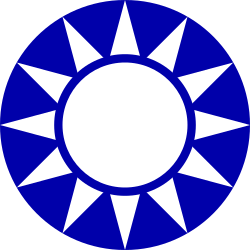Taiwan Faces Triple Threat from Beijing, Domestic Politics, and US Political Shifts

Taipei, Taiwan – A recent social media post by user "pourteaux" on TaiwanPlus News has sparked discussion by identifying the Chinese Communist Party (CCP), the Kuomintang (KMT), and the MAGA movement as the three biggest risks to Taiwan. This statement encapsulates the complex geopolitical and domestic challenges facing the self-governing island.\n\nThe most prominent external threat remains the Chinese Communist Party, which views Taiwan as a breakaway province to be unified with the mainland, by force if necessary. Beijing has significantly escalated military and political pressure on Taipei since 2016, with increased aerial incursions into Taiwan's Air Defense Identification Zone (ADIZ) and naval drills near the island. Recent reports from October 2025 indicate the PLA has expanded "mock Taipei" training grounds, signaling increasing commitment to realistic military exercises and potential decapitation operations against Taiwanese leadership. Furthermore, the PRC continues to use "gray zone" tactics, including maritime incursions and cyberattacks, to erode Taiwan's sovereignty and test its response capabilities.\n\nDomestically, the Kuomintang (KMT) is cited as a risk, primarily due to its historical stance and current policies regarding cross-strait relations. While the KMT opposes Taiwan's independence and advocates for closer ties with Beijing, its interpretation of the "One China" framework under the 1992 Consensus differs from the DPP's. The KMT-led Legislative Yuan has recently passed significant cuts to the Ministry of National Defense's budget, which could impede Taiwan's ability to enhance its military capabilities amidst rising external threats. This has led to concerns that the KMT's approach could inadvertently weaken Taiwan's defensive posture or align with Beijing's interests in a way that undermines Taiwan's autonomy.\n\nThe "MAGA" movement, often associated with former US President Donald Trump's "America First" policies, presents a different kind of risk. During his previous administration, Trump questioned the US's commitment to allies and suggested that Taiwan "stole" semiconductor manufacturing opportunities from the US, even threatening tariffs. A potential future Trump administration could lead to a shift in US foreign policy, potentially reducing support for Taiwan or using the island as a bargaining chip in broader US-China relations. Concerns exist that a less predictable or isolationist US stance could embolden Beijing and leave Taiwan more vulnerable.\n\nTaiwan's President Lai Ching-te has emphasized strengthening the island's defense and diversifying its trade relationships, particularly to reduce reliance on China. However, the intertwined challenges posed by Beijing's assertiveness, domestic political divisions, and potential shifts in international alliances underscore the multifaceted nature of Taiwan's security landscape.